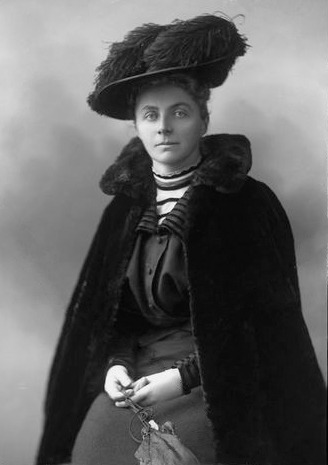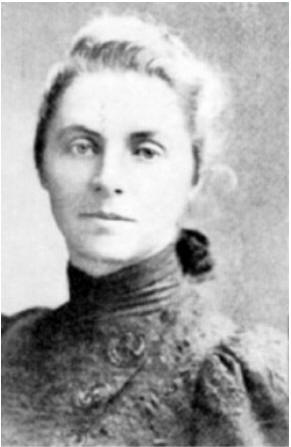Queer Places:
St Ives Harbour Hotel & Spa, The Terrace, Saint Ives TR26 2BN
National Women's Monument, Monument Rd, Generaal De Wet, Bloemfontein, 9301
 Emily
Hobhouse (9 April 1860 – 8 June 1926) was a British welfare campaigner,
feminist, and pacifist.[1][2][3]
She is primarily remembered for bringing to the attention of the British
public, and working to change, the deprived conditions inside the British
concentration camps in South Africa built to incarcerate Boer women and
children during the Second Boer War.
Emily
Hobhouse (9 April 1860 – 8 June 1926) was a British welfare campaigner,
feminist, and pacifist.[1][2][3]
She is primarily remembered for bringing to the attention of the British
public, and working to change, the deprived conditions inside the British
concentration camps in South Africa built to incarcerate Boer women and
children during the Second Boer War.
Born in St Ive, near Liskeard in Cornwall, she was the daughter of
Caroline (née Trelawny) and Reginald Hobhouse, an Anglican rector and the
first Archdeacon of Bodmin. She was the sister of Leonard Trelawny
Hobhouse, a peace activist and proponent of social liberalism.[4]
She was a second cousin of the peace activist Stephen Henry Hobhouse and
was a major influence on him.[5]
Her mother died when she was 20, and she spent the next fourteen years
looking after her father who was in poor health. When her father died in
1895 she went to Minnesota to perform welfare work amongst Cornish
mineworkers living there, the trip having been organised by the wife of
the Archbishop of Canterbury. There she became engaged to John Carr
Jackson and the couple bought a ranch in Mexico but this did not prosper
and the engagement was broken off. She returned to England in 1898 after
losing most of her money in a speculative venture. Her wedding veil (which
she never wore) hangs in the head office of the Oranje Vrouevereniging
(Orange Women's Society) in Bloemfontein, the first women's welfare
organisation in the Orange Free State, as a symbol of her commitment to
the uplifting of women.
Hobhouse was an avid opponent of the First World War and protested
vigorously against it. She organised the writing, signing and publishing
in January 1915 of the "Open Christmas Letter", addressed "To the Women of
Germany and Austria".[13]
Through her offices, thousands of women and children were fed daily for
more than a year in central Europe after this war. South Africa
contributed liberally towards this effort, and an amount of more than
£17,000 was collected by Mrs. President Steyn (who was to remain a
lifelong friend) and sent to Hobhouse for this purpose.

She became an honorary citizen of South Africa for her humanitarian
work there. Unbeknown to her, on the initiative of Mrs R. I. Steyn, a sum
of £2,300 was collected from the Afrikaner nation and with that Emily
purchased a house in St Ives, Cornwall, which now forms part of
Porthminster Hotel.[14]
In this hotel a commemorative plaque, situated within what was her lounge,
was unveiled by the South African High Commissioner, Mr Kent Durr, as a
tribute to her humanitarianism and heroism during the Anglo Boer War.
Hobhouse died in Kensington in 1926.[15]
Her ashes were ensconced in a niche in the National Women's Monument at
Bloemfontein, where she was regarded as a heroine. Her death went
unreported in the Cornish press.[16]
My published books:


BACK TO HOME PAGE

https://en.wikipedia.org/wiki/Emily_Hobhouse
 Emily
Hobhouse (9 April 1860 – 8 June 1926) was a British welfare campaigner,
feminist, and pacifist.[1][2][3]
She is primarily remembered for bringing to the attention of the British
public, and working to change, the deprived conditions inside the British
concentration camps in South Africa built to incarcerate Boer women and
children during the Second Boer War.
Emily
Hobhouse (9 April 1860 – 8 June 1926) was a British welfare campaigner,
feminist, and pacifist.[1][2][3]
She is primarily remembered for bringing to the attention of the British
public, and working to change, the deprived conditions inside the British
concentration camps in South Africa built to incarcerate Boer women and
children during the Second Boer War. 

